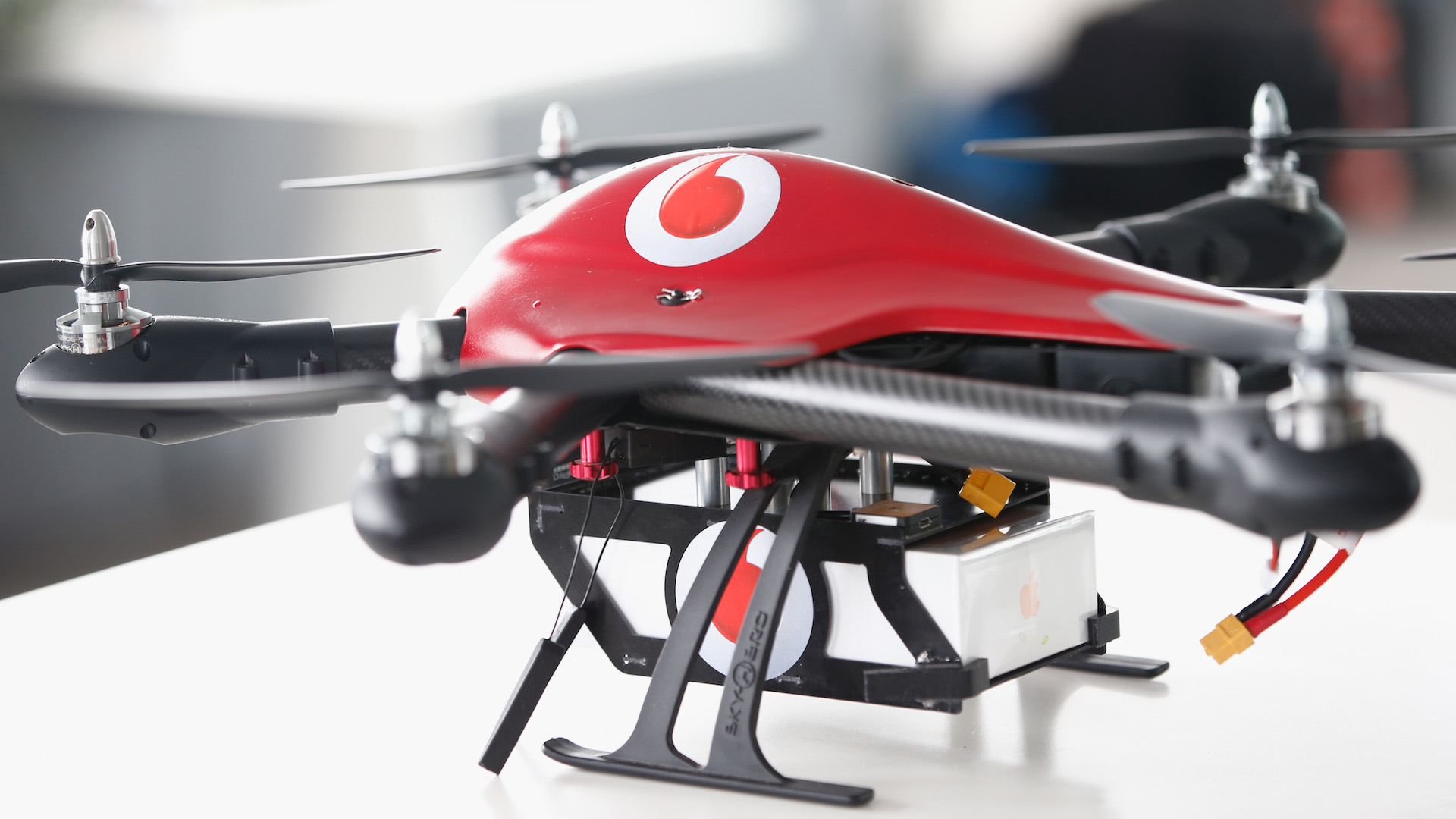

Earlier this year, we reported Vodafone was working on a drone-tracking system for unmanned aerial vehicles too small to be detected by conventional radar. According to The Financial Times, the European telecom is continuing to lean into the anti-drone field by developing an Internet of Things-based drone tracking system in the U.K. to protect critical infrastructure.
For the uninitiated, the Internet of Things (IoT) is a fairly new term which essentially refers to a network of electronic devices sharing and collecting data online. For Vodafone, of course, the IoT in question is the company’s entire network of smartphones and other devices capable of accessing the internet, such as a tablet using a Vodafone SIM card for data, for example. What the company hopes to achieve here, is using its wide-ranging network to track rogue drones and stop them from jeopardizing the integrity of critical infrastructure such as power plants, prisons, airports, factories, and more.
Vodafone hopes to have this system in place by fall, in order to market it to commercial clients in desperate need of protecting various properties. As is evident by the sheer amount of news we’ve reported about rogue drones infiltrating prisons, public sporting events, and royal palaces to name a few, and there is an increasingly glaring demand for a thorough, all-encompassing solution to unwelcome aerial threats. Vodafone is aware of that, and is eager to get its head in the game sooner, rather than later.
“Drones can pose security risks,” said Vodafone’s Head of Enterprise in the U.K., Anne Sheehan. “In the U.K., we’re developing internet of things drone tracking and safety technology in a number of locations where we have important infrastructure. We are now looking to use this technology to help our business customers in a bid to thwart drone incursions at sensitive locations. These could be energy installations, airports, prisons, military bases and public events.”
Vodafone’s IoT-based drone tracking system, specifically, is rooted in software comprised of the U.K.’s CCTV cameras and sensors that use Vodafone’s data service. If a drone is detected anywhere near this system, an alarm will sound, and both Vodafone and the client will be alerted of the intrusion. Additionally, the person piloting the drone can be located, while the company in charge of the building’s security is alerted.
For Vodafone, which has millions of SIM cards installed in devices across the globe, ranging from cars and smart meters to tablets and smartphones, the logic of focusing on both the Internet of Things and the drone industry is fairly sound. The telecom has reportedly even met with various aviation authorities and agencies to establish itself as the premier management entity to control professional drone activity in the future. Clearly, Vodafone is looking toward the future, where drones could potentially become as ubiquitous as the smartphones that can track them.